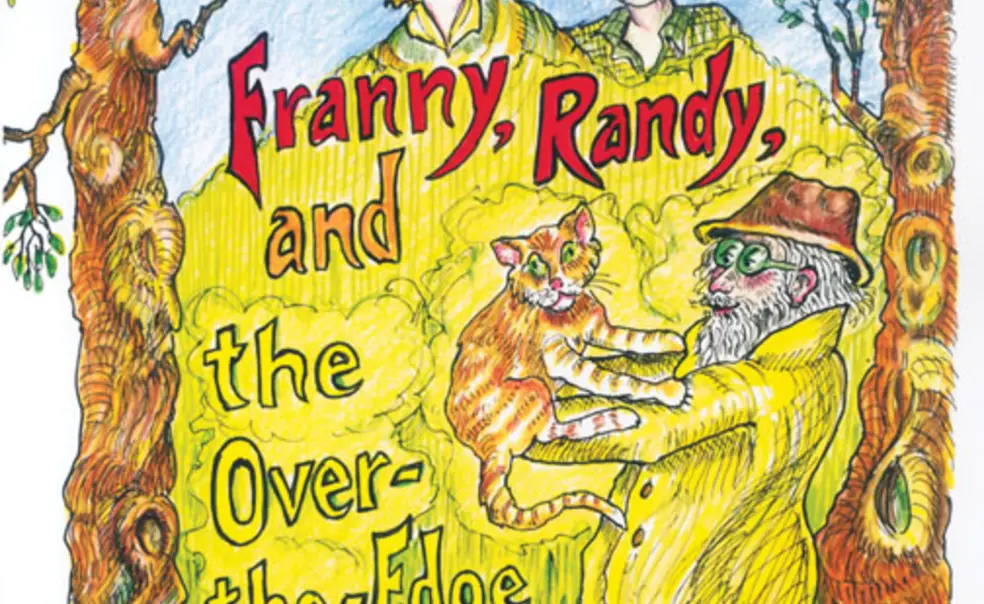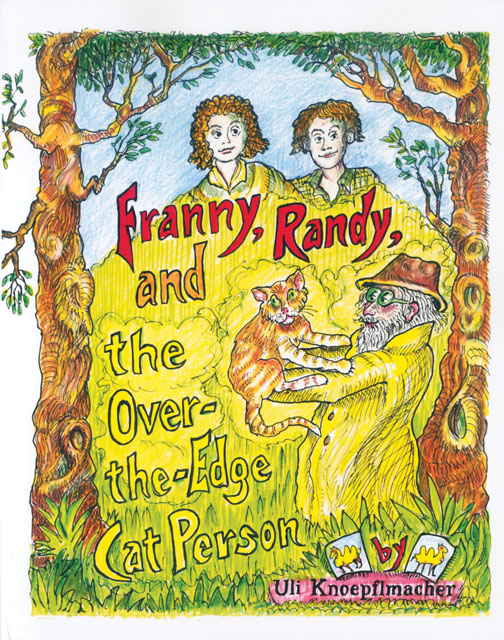Scholar of children's literature authors a book for youngsters
Authors who write for children “go back to their own childhood,” says Ulrich (Uli) Knoepflmacher *61. The children’s literature scholar and emeritus professor of English at Princeton — called a “child with white hair” by one of his students — has done just that in penning and illustrating his first children’s book.
Published by the small independent press Writings, Franny, Randy, and the Over-the-Edge Cat Person is about twins whose doctor-parents have left them for months in the care of their kind aunt while they treat victims of an epidemic in a “faraway” country.
Knoepflmacher’s personal imprint on the book is partly visual. While the twins secretly yearn for the return of their parents — who they fear might never come home — they befriend an odd old man who takes care of hungry cats and who is shunned by most people in town. Named Elias, the man looks a lot like the author himself — with white hair and beard and rumpled clothes. (Like the character, Knoepflmacher is a cat-lover.)
The twins’ feelings of abandonment by their parents are based partly on Knoepflmacher’s experience as a Jewish refugee during World War II. He never was separated from his Austrian parents, but he was separated from his culture as his family fled Vienna in 1939 and emigrated to Bolivia. Knoepflmacher, who is working on a memoir of his early life, worried that he might be sent to England on the Kindertransport, the rescue mission that placed Jewish children in British foster homes, hostels, and farms. Later he wondered if his father, a civil engineer in charge of a mine in the Bolivian mountains, might be injured or killed.
The old man in the story who helps “those who need me” is endowed with special powers. He knows what the children want most — their parents — and in the end, he magically disappears as the twins’ parents return unexpectedly.
Knoepflmacher — a specialist in Victorian literature who taught courses on children’s literature at Princeton for nearly 30 years and is credited with bringing new respect to that field — sprinkles his story with allusions to classics. The twins’ teacher reads them a story about a camel that always said “Humph” — a nod to a Rudyard Kipling tale. The twins’ names are drawn from authors Knoepflmacher admires: “Franny” for A Little Princess author Frances Hodgson Burnett, and “Randy” for the poet and children’s author Randall Jarrell. Some readers might recognize that the name of the old man, Elias, recalls Elijah, who in rabbinic literature appears in times of trouble to promise redemption and plant hope.













No responses yet